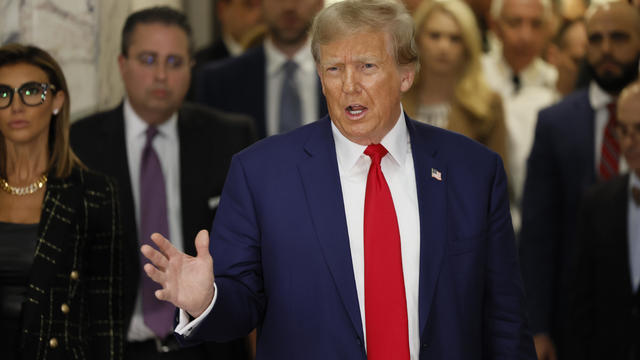

No response returned

As the public assesses the U.S. on Iran's , at least three things are in play.
One, there's a largely bipartisan view that any Iranian nuclear weapon would pose a threat to the U.S. Second, there are bipartisan concerns that the U.S. could get involved in a wider war with Iran. And third, there are differing perceptions of just how effective those will ultimately prove to be.
Amid that, it is Republicans, including MAGA Republicans, who overwhelmingly back the airstrikes, and they comprise the bulk of those who do. For the rest of the public, however — and netting out to a majority overall — there is disapproval of those airstrikes and still-greater concern about a potential wider war.
Going forward, the nation divides over whether it has confidence in the Trump administration's handling of the situation (here again, Republicans do, others do not) and on whether the strikes will actually make it less likely Iran develops a .
Then, as Congress returns to session, a sizable two-thirds of the country say President Trump does need congressional to conduct military action against Iran.
Concern about the U.S. possibly becoming involved in a wider war with Iran does span partisan lines. For most Republicans, though, there is relatively less such concern.
Polling was mostly conducted prior to reports regarding a ceasefire between Iran and Israel.
Republicans show overwhelming confidence in the administration's handling of the situation with Iran, which nets out to the nation being split on that overall.
A large two-thirds say Mr. Trump does need congressional approval for action against Iran. That includes a third of Republicans. MAGA Republicans, in particular, though, are more likely than other Republicans to say Mr. Trump does not need congressional approval for action against Iran.
Right now MAGA rank-and-file are no more concerned about a wider war than Republicans overall.
Most Americans do think Iran will probably try to launch attacks against the U.S. or its interests now as opposed to negotiating. (Polling was being conducted while Iran missiles toward a U.S. base in Qatar. And was mostly completed prior to reports of a cease fire between Israel and Iran.)
The more likely people are to think Iran will try to attack the U.S. now (as opposed to negotiating), the more concerned they are about a wider war.
Large majorities would see the prospect of Iran having a nuclear weapon as a threat, both to the U.S. and to Israel.
Much of this, beyond the partisanship, also centers on views about effectiveness: whether or not Iran is now less likely to develop a nuclear weapon.
Meanwhile, on the home front, perceptions of the U.S. economy remain bad in the eyes of most, as they have for years, with most still saying prices are still going up. Even as current ratings remain stable, the outlook remains overall negative. Just over half the country says the economy is getting worse; just over half continue to think the year ahead will bring at least a slowdown or . That sentiment has not abated in recent months.
This TheNews/YouGov survey was conducted with a nationally representative sample of 1,720 U.S. adults interviewed between June 22-24, 2025. The sample was weighted to be representative of adults nationwide according to gender, age, race, and education, based on the U.S. Census American Community Survey and Current Population Survey, as well as 2024 presidential vote. The margin of error is ±3.0 points.





